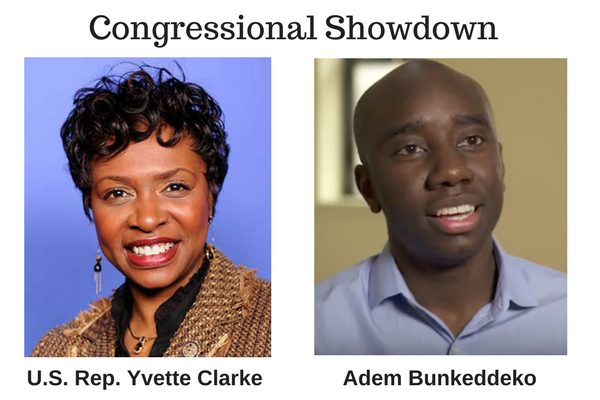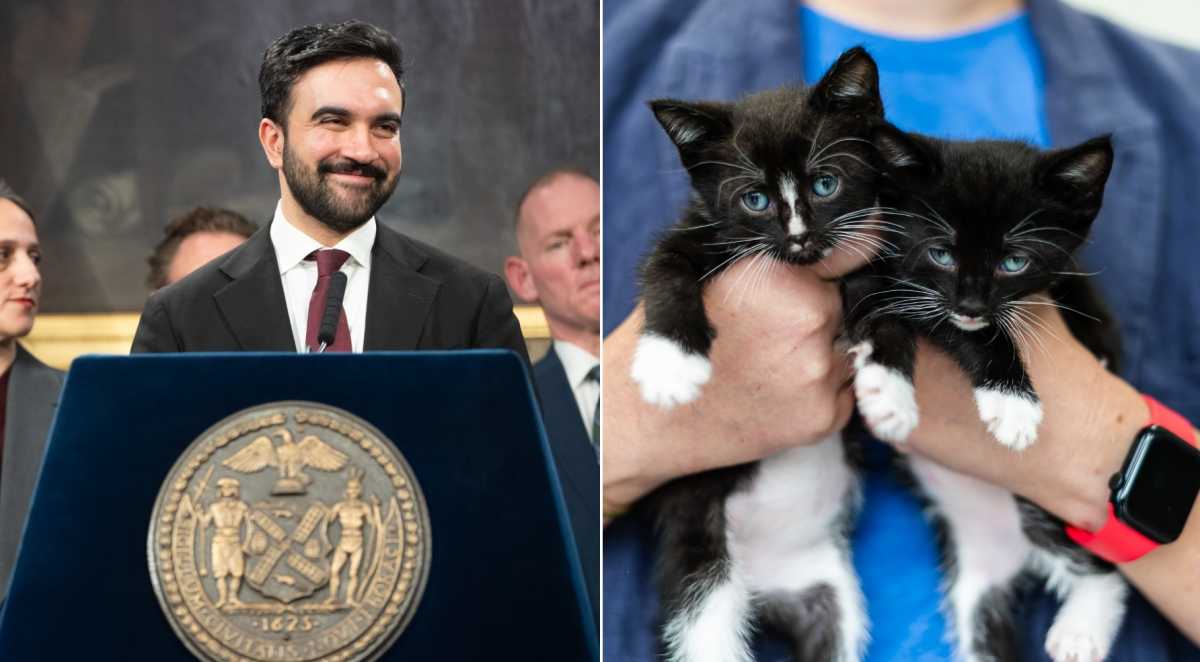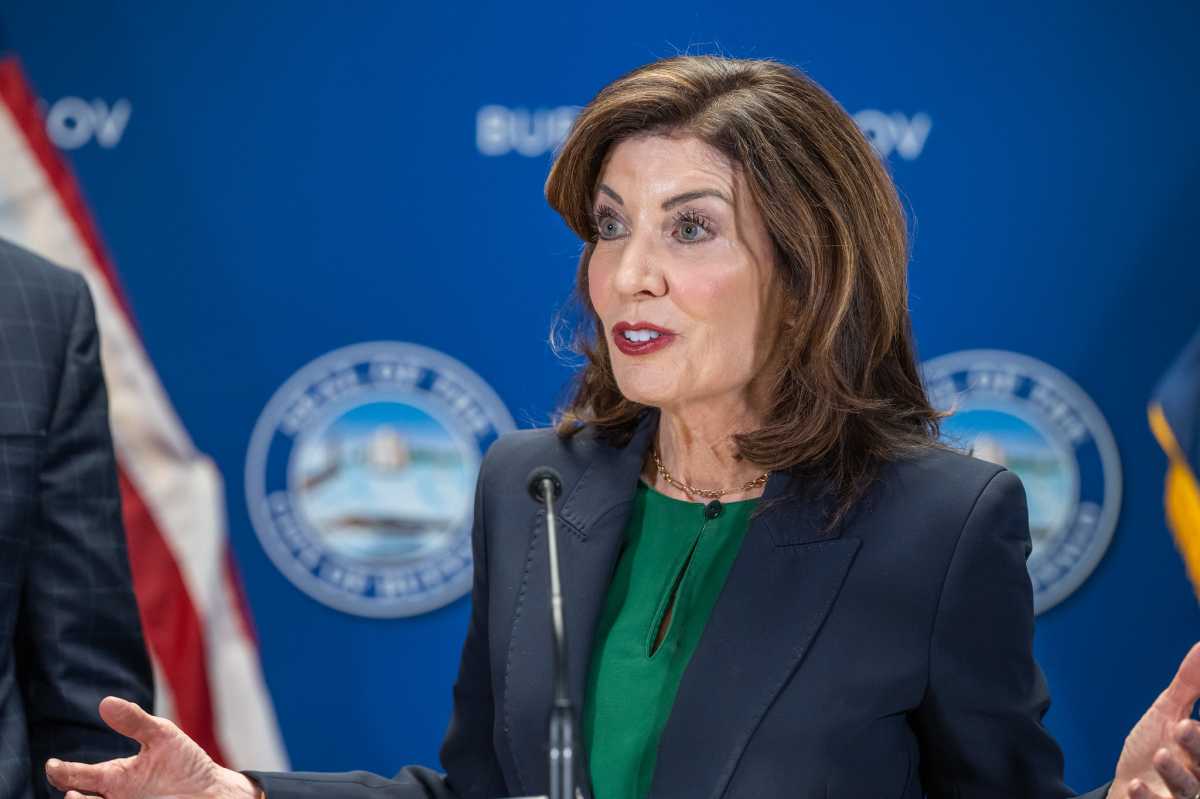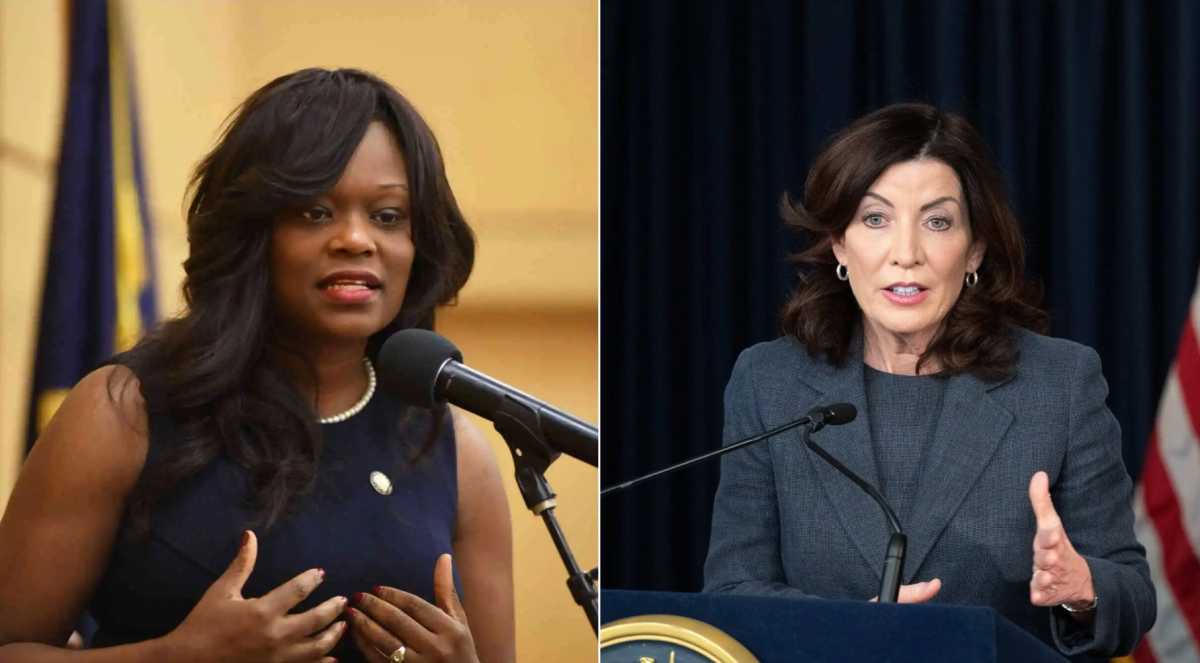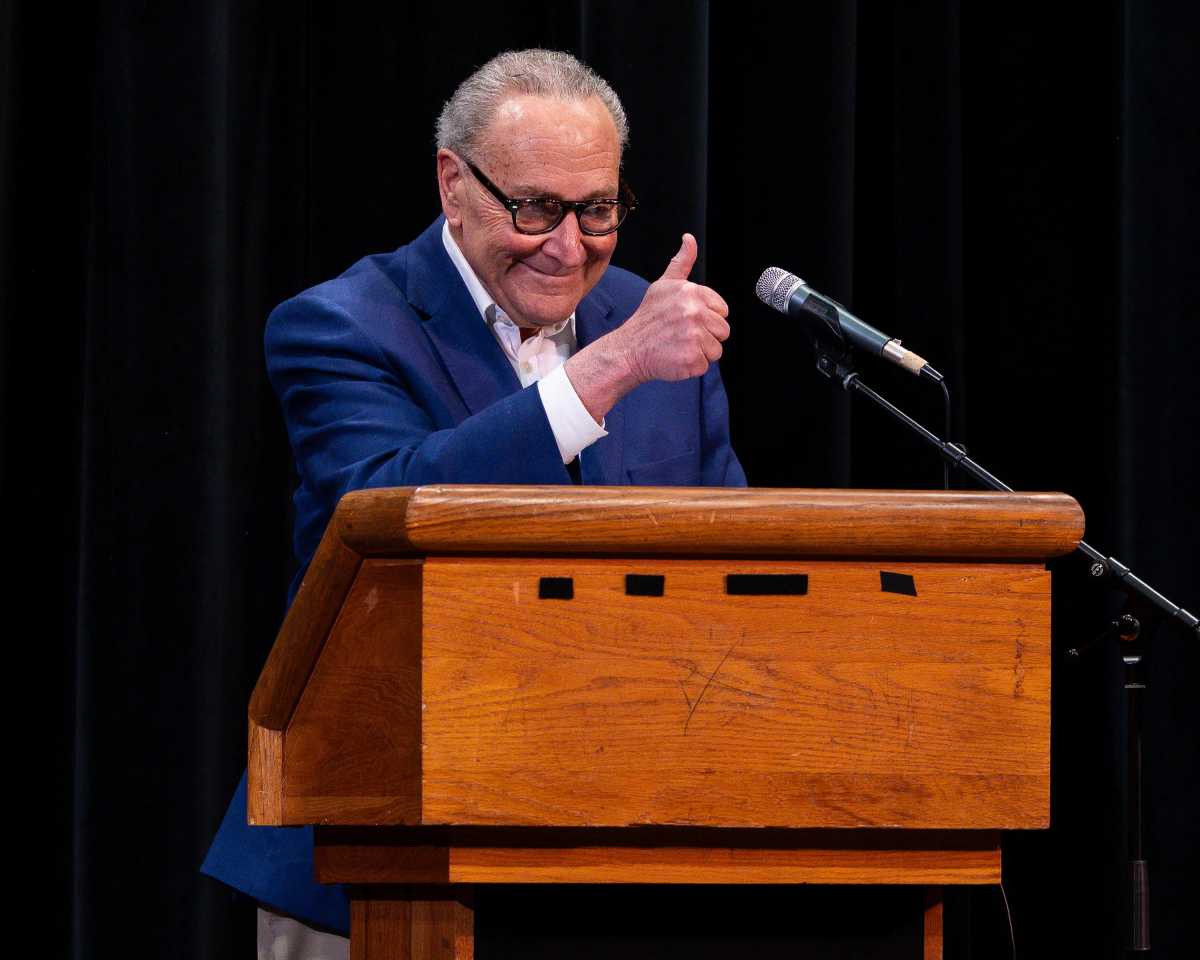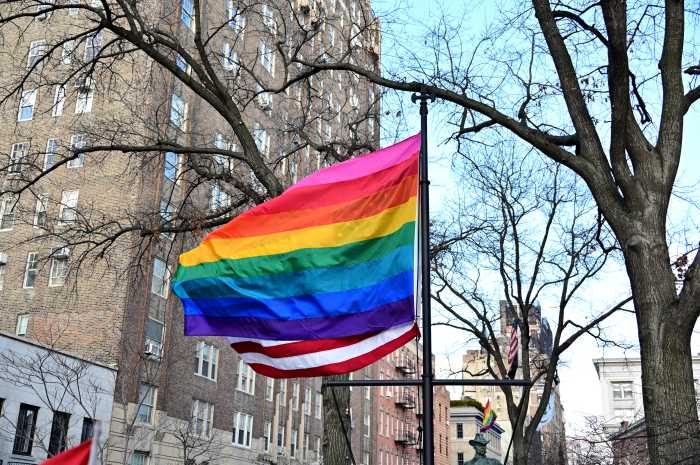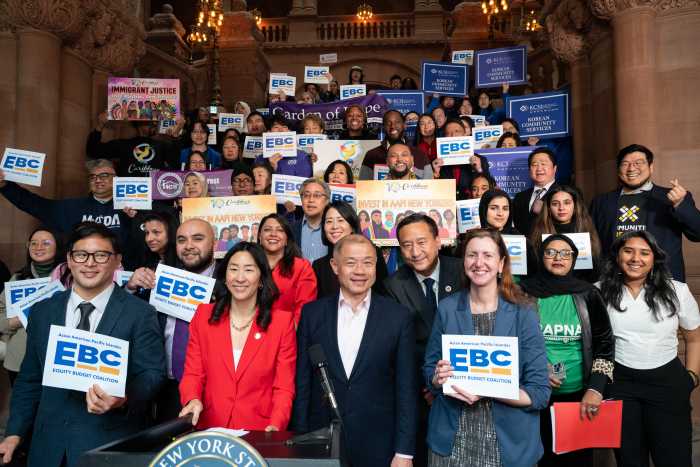While the debate continues over whether Congress should legalize marijuana on the federal level to make the nation’s laws uniform as some states have it legalized while others don’t, U.S. Rep. Yvette Clarke (D-Crown Heights, Prospect Lefferts Gardens, Flatbush, East Flatbush, Brownsville, Sheepshead Bay) is not weighing in on the matter.
The issue came up recently, when Clarke’s opponent in the upcoming June 26 Congressional Primary , Adem Bunkeddeko, sent out a notice that he wants to be a strong voice in Washington for the complete legalization of marijuana on the federal level.

“Trump’s Attorney General, Jeff Sessions, continues to push regressive legislation against legalization and is threatening to undermine states’ abilities to choose how to best deal with this issue, perpetuating a racist double standard that harms Brooklyn families. I believe legalizing marijuana and re-enfranchising people who have previously served their time is core to criminal justice reform and will provide much-needed resources to states and relief to taxpayers,” said Bunkeddeko.
Currently, nine states—Alaska, California, Colorado, Maine, Massachusetts, Nevada, Oregon, Vermont, and Washington—and the District of Columbia have legalized marijuana for recreational use. Other states have taken steps to allow medical marijuana use and/or decriminalize the possession of smaller amounts of marijuana.
New York decriminalized the possession of 25 grams or less back in 1977 but possession in public view remains a misdemeanor, which has resulted in many people still being arrested for possessing small amounts rather than being faced with the $100 fine, negating the effort. In 2014 New York passed legislation permitting the use of marijuana of medical purposes.
While marijuana is considered a relatively safe drug with possible medical benefits, opponents to its legalization usually cite public health concerns. One fear, is that legalized marijuana will lead to increased usage and create particular problems for vulnerable populations such as youth and those who will go on to develop addictions, or dependence. Research has shown that marijuana can have permanent effects on developing brains and lead to behaviors and health problems that can cause problems into adulthood.
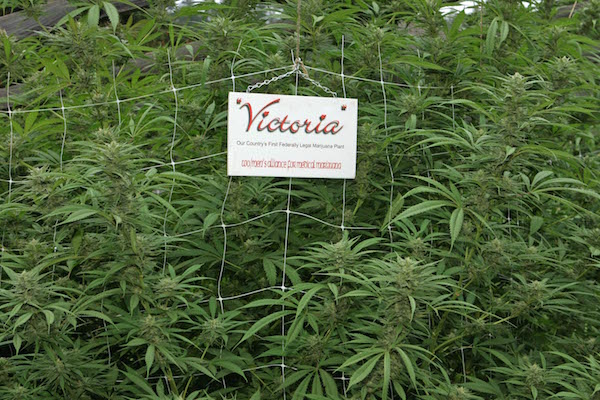 As for adults, just as a small percentage of alcohol users are responsible for a disproportionately large percentage of alcohol consumption, there are fears that a similar dependency will develop amount a group of marijuana users if it is more widely available.
As for adults, just as a small percentage of alcohol users are responsible for a disproportionately large percentage of alcohol consumption, there are fears that a similar dependency will develop amount a group of marijuana users if it is more widely available.
Additionally, although advocates for legalization suggest that law enforcement would spend less time going after less dangerous drug offenses, marijuana may increase other crimes such as DUIs and property crimes.
“Right now, we’re diverting law enforcement efforts that should be focused on violent crimes; we’re wasting taxpayer dollars on the costs of incarceration which ruins people’s lives forever; and we’re denying municipalities the ability to generate revenue for critical public investments like affordable housing, education, and infrastructure,” said Bunkeddeko.
Currently, there is no reliable breathalyzer equivalent for driving while impaired because of marijuana usage, nor is there a standardized legal limit which officers or the courts can use to gauge someone’s level of impairment. Even more invasive blood tests are imperfect as even if someone has abstained from using marijuana can show THC levels, the main psychoactive chemical in marijuana, 30 days after the last time they have used.
Another worry is that a study has found that in areas adjacent to marijuana stores in Denver have seen a slight increases in property crime. The marijuana outlets led to similar levels of property crime as bars, liquor stores and restaurants that serve alcohol and actually had no significant increase in violent crime—unsurprisingly the presence of alcohol led to much more violent crime than marijuana outlets.
At least as far as concerns about increased teenage marijuana usage goes, in Colorado the fears have not panned out. And Quinnipiac University poll last year concluded that 59 percent of American voters believe cannabis should be legal showing that there is increasing support of legalization measures.
Thought still has to be put into legalization policy in order to address concerns for public health and safety, in a similar fashion as alcohol, which Bunkeddeko has not addressed as of yet.
The legalization on the federal level would solve the current interstate black market between states where marijuana is still illegal and those that allow its sale. Moreover, as he has pointed out states are finding marijuana taxes to be a useful revenue source, but even if New York state could pull in as much marijuana revenue as Colorado it would still only make a small dent in the state’s budget deficit.
Clarke’s campaign team did not get back to KCP regarding her stance on Marijuana legalization.


